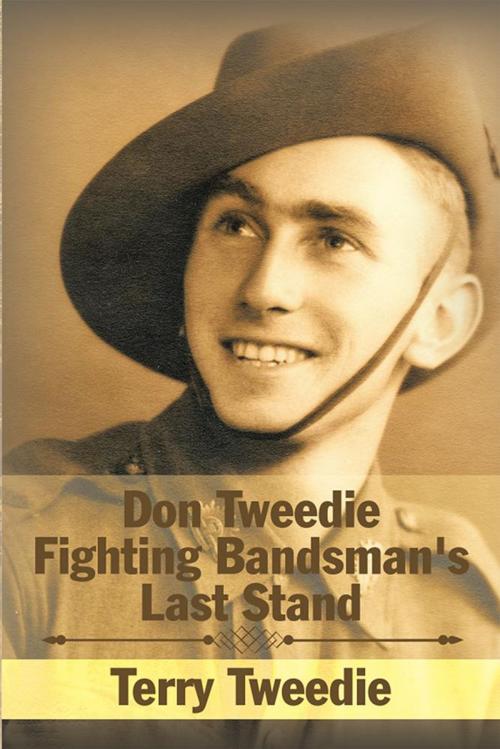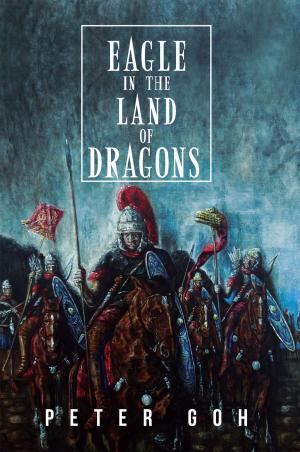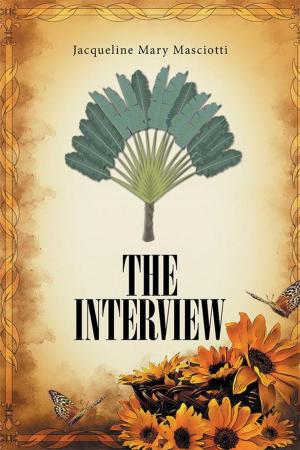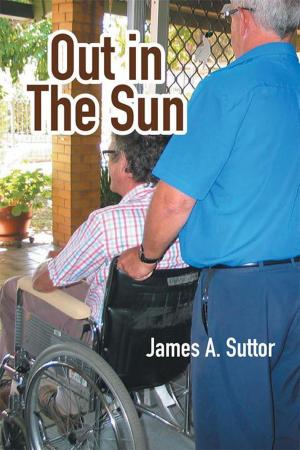Don Tweedie Fighting Bandsman's Last Stand
Nonfiction, Reference & Language, Reference, History, Military, Biography & Memoir| Author: | Terry Tweedie | ISBN: | 9781524518523 |
| Publisher: | Xlibris AU | Publication: | November 10, 2016 |
| Imprint: | Xlibris AU | Language: | English |
| Author: | Terry Tweedie |
| ISBN: | 9781524518523 |
| Publisher: | Xlibris AU |
| Publication: | November 10, 2016 |
| Imprint: | Xlibris AU |
| Language: | English |
Don Tweedie, Fighting Bandsman's Last Stand is a story of courage, determination, heroism, faith, love, and mateship throughout World War II. Don Tweedies last stand against the Japanese was in 1942 at Holland Hill, Singapore where he was severely wounded. Most stories that have been written have been more of a historical sense, whereas this is a more personal story. This book is written in three parts, and outlines his childhood/teenage years and leads into World War II, and then how he dealt with the images of war when he returned home in 1945. Part 2 is written from the heart, as it was told to his son about his war experience. Don Tweedie grew up throughout the Depression years, leading into WWII. He worked in a clothing warehouse in Sydney, and always wanted to play in a brass band. He joined the militia in 1937, and then enlisted in the infantry in 1940 to fight for his country. Don Tweedie was posted with the 2/20th Battalion in the Australian 8th Division to Malaya. It was while he was in the infantry that he became a bass drummer for the 2/20th Battalion band. However, he was severely wounded and captured in the fall of Singapore and was placed in captivity in Changi, Burma Railway, Saigon, Singapore, and Japan for the rest of the war. Don Tweedie was a quiet honest and respectful person. He was a very proud man who loved the fact that he fought for his country. More importantly, he was not going to give in to his captors. He had a strong bond between himself and those POWs who suffered or died and witnessed all those atrocities with him. While the physical problems were an issue, it was the emotional and psychological scars that a lot of these men suffered that would haunt them for a lifetime. However, life goes on, and Don Tweedie fulfilled his dreams to own his own cattle studs and play in a brass band. He played in the Forbes Town band for forty-six years right up until he passed away. This book is to pay tribute to Don Tweedie and all his fellow POWs, and also the families and friends of those POWs including the mothers, wives, and girlfriends who suffered along with their husbands, sons, uncles, brothers, grandfathers, or friends.
Don Tweedie, Fighting Bandsman's Last Stand is a story of courage, determination, heroism, faith, love, and mateship throughout World War II. Don Tweedies last stand against the Japanese was in 1942 at Holland Hill, Singapore where he was severely wounded. Most stories that have been written have been more of a historical sense, whereas this is a more personal story. This book is written in three parts, and outlines his childhood/teenage years and leads into World War II, and then how he dealt with the images of war when he returned home in 1945. Part 2 is written from the heart, as it was told to his son about his war experience. Don Tweedie grew up throughout the Depression years, leading into WWII. He worked in a clothing warehouse in Sydney, and always wanted to play in a brass band. He joined the militia in 1937, and then enlisted in the infantry in 1940 to fight for his country. Don Tweedie was posted with the 2/20th Battalion in the Australian 8th Division to Malaya. It was while he was in the infantry that he became a bass drummer for the 2/20th Battalion band. However, he was severely wounded and captured in the fall of Singapore and was placed in captivity in Changi, Burma Railway, Saigon, Singapore, and Japan for the rest of the war. Don Tweedie was a quiet honest and respectful person. He was a very proud man who loved the fact that he fought for his country. More importantly, he was not going to give in to his captors. He had a strong bond between himself and those POWs who suffered or died and witnessed all those atrocities with him. While the physical problems were an issue, it was the emotional and psychological scars that a lot of these men suffered that would haunt them for a lifetime. However, life goes on, and Don Tweedie fulfilled his dreams to own his own cattle studs and play in a brass band. He played in the Forbes Town band for forty-six years right up until he passed away. This book is to pay tribute to Don Tweedie and all his fellow POWs, and also the families and friends of those POWs including the mothers, wives, and girlfriends who suffered along with their husbands, sons, uncles, brothers, grandfathers, or friends.















